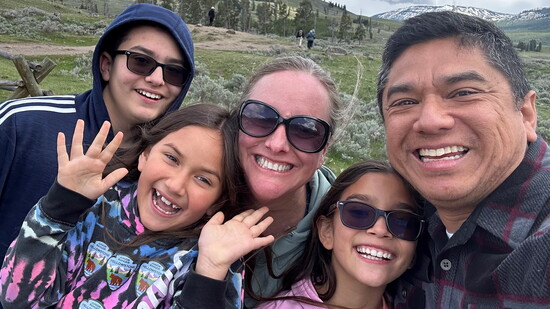When it comes to investing, especially as a first-timer, things might get a little overwhelming. Between all the seemingly foreign financial jargon and various strategies, starting to invest might seem daunting. However, with the proper guidance, navigating the financial landscape can be empowering and rewarding. In this issue, we speak with Omar Chyou, Senior Vice President of Wealth Management at Merrill Lynch in Walnut Creek, to gain insights into investing as a first-timer.
Omar's passion for financial planning began early in life when, as a college freshman, he faced an unexpected lesson in credit card debt.
"My parents helped me pay off my balance, and I quickly learned about the pitfalls of credit card debt due to the compounding interest," he recalls. This incident left a lasting impression on Omar's life. It drove him to pursue a career in financial services upon graduating to help others achieve better financial outcomes.
Omar says for many first-time investors, the fear of market downturns can create hesitation. They often get scared, not wanting to "lose more," and prematurely pull out of the market, only to reinvest later at higher prices, missing critical growth opportunities.
"These investors end up sitting on the sidelines in cash waiting for the 'right time' and end up missing the market bounce only to then reinvest at a higher price after the market has eclipsed the original value they sold their investment," says Omar.
To avoid this pitfall, Omar advises investors to have a solid financial plan with clear goals, which will enable them to remain focused on their long-term objectives and time horizons.
"This plan will guide each person to make better personal financial decisions as there is meaning behind each action and a clearer reason to either maintain the course or make a change," says Omar.
He also stresses the importance of focusing on the big picture when investing.
"It is not just how much you make, but how much you keep," says Omar.
Omar offers a straightforward approach when asked about the best strategies for first-time investors.
"Newer investors believe they need to time the market and buy in at the 'right time.' However, the right time is now. Get in early and let the power of compounding be an ally," says Omar. "A common adage comes to mind: 'It is not timing the market, but time in the market.'"
Additionally, Omar stresses the importance of maintaining a reserve amount of cash, about six months of one's average monthly expenses, for emergencies to navigate market downturns.
"Personally, I also believe that while a younger investor should be fully invested, having a strategic amount of cash can provide benefits when markets decline and there are good opportunities to purchase," says Omar.
First-time investors should possess patience and fortitude, not be greedy, and have a specific end goal when investing.
"Steady the course during turbulent markets and don't make emotional decisions," says Omar. "Having an investment policy as part of a personal plan can be very helpful as it can serve as a reminder as to why one is invested the way they are and dissuade poor knee-jerk reactions."
Beyond his professional expertise, Omar, a Spanish speaker, actively supports organizations focused on the Latino community and is deeply engaged in local initiatives. In his personal life, he enjoys spending time with his wife and three children and embracing the great outdoors through hiking, fly fishing, snowboarding, and karting.
"I am a car enthusiast and enjoy going to races or being on a track myself," says Omar.
"Newer investors believe they need to time the market and buy in at the 'right time.' However, the right time is now. Get in early and let the power of compounding be an ally," says Omar.
